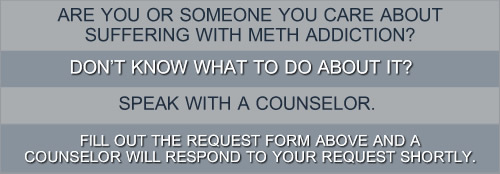
Symptoms and Treatment of a Meth Overdose
Methamphetamines (meth) are a drug of choice for many drug users because of the feeling of a quick high and incredible energy. This type of drug is a stimulant which speeds up the brain and gives a person the feeling that they can keep going and going like the energizer bunny. The ability to stay awake for long periods of time combined with high levels of energy are primary reasons that abuse begins. It is taken more often and in larger doses to maintain that constant high.
This type of drug has many names on the street such as ice, speed, glass and crank. It is made in pill form, as a powder and also in crystal form which is more commonly referred to as crystal meth, a very popular drug on the street. Methamphetamines are ingested in different ways. They can be swallowed and snorted which is called bumping. They can also be smoked, inhaled or taken by injecting a needle into a vein. When injected it is referred to as a flash or a rush because it gives the user such a fast, powerful high. In addition to speeding up the brain, meth also speeds up the user's breathing, heart rate and blood pressure. Using this drug long term can result in brain damage with effects like memory loss, loss of muscle control and twitching, mood swings and violent tendencies. With continuous use of this drug, a meth addict's teeth will rapidly decay leaving a wake of deteriorated, rotten teeth in their mouth that cannot be saved (commonly called meth mouth).
Meth Overdose
When taken in large doses or if more was taken than what the body can actually handle, meth can cause serious health risks with symptoms such as dizziness, confusion, profuse sweating, blurred vision, elevated body temperature, tremors, nausea and vomiting, muscle pain, convulsions or seizures, and possibly death. If an individual has one or more of these symptoms they may be experiencing a meth overdose and should get immediate medical attention. Side effects that may not appear to be life threatening like shakiness or an inability to sit still may still mean that it is a possible overdose and they should seek help. If a meth user is actually experiencing an overdose and they do not seek immediate medical attention they could die.
A meth overdose is also referred to as acute methamphetamine intoxication. An individual in this condition can also be extremely agitated, irrational and possibly violent posing a threat to themselves or others. Assistance by police or EMS providers may be required before transporting the individual to get help to ensure a safe and controlled situation.
Treatment of a Meth Overdose
Medical professionals will quickly assess the patient's condition to determine if a meth overdose has occurred. Treatment options vary based on different factors like the patient's age and health condition, if the drug was taken in combination with any other drugs or alcohol, how it was taken (swallowed, injected, etc.), how much was taken (if known), etc. If the drug was taken by mouth they may be able to pump the stomach or use certain drugs to counteract the effects. In many cases
treatment can be managed supportively by treating individual symptoms that resulted from the overdose. Heart, lungs and blood pressure are monitored closely with the appropriate medications given to lower blood pressure. IV fluids will be given and medications administered according to the symptom and its severity.
A fatal overdose typically results from a rapid onset of kidney failure followed by other organs shutting down. Collapse of the cardiovascular system and circulatory system follow resulting in death. Patients who die from an overdose may very likely have suffered symptoms of inability to urinate, muscle twitching, shock, and coma.
Long-term Effects of a Meth Overdose
Large doses of methamphetamines and using for prolonged periods takes a horrible toll on a person's body. A meth overdose is just icing on the cake and adds to the damage inflicted by this drug. Some of the long-term effects and complications, aside from damage to the brain, are chronic hypertension, kidney and organ failure, pulmonary edema, hypoglycemia, heart problems and more.
- Questions?
